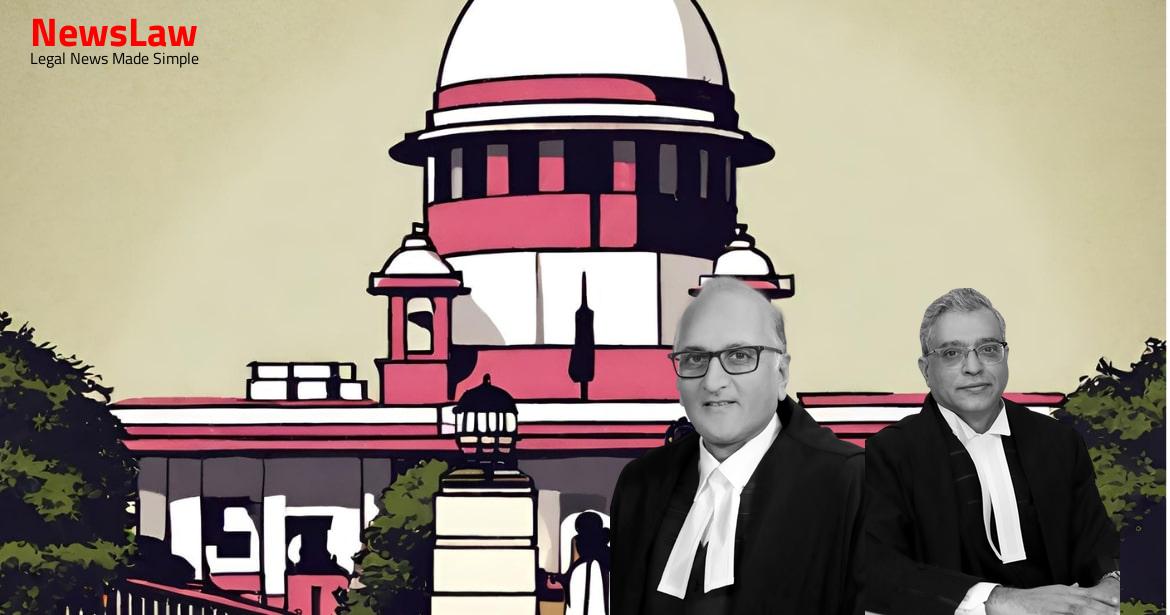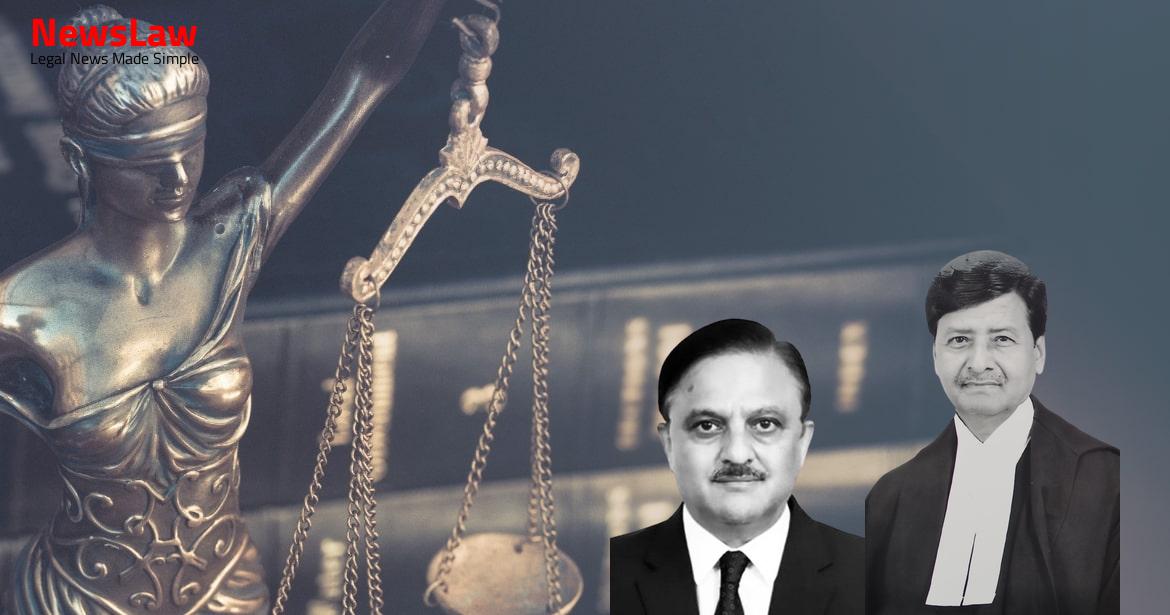In a recent legal case, the court’s meticulous analysis of limitation in criminal proceedings sheds light on the intricate interpretations of time constraints in the legal realm. The application of statutory limitations and the court’s approach to addressing timing issues play a pivotal role in upholding justice and ensuring fair legal procedures.
Facts
- The petitioners claimed that the matrimonial dispute was being falsely portrayed as a criminal matter by the respondent.
- The court decided to quash the proceedings in D.V. No.21 of 2018 for the petitioners, with a condition that the husband must deposit Rs.5,000 every month as maintenance.
- Upon deposit, the respondent could withdraw the amount.
- The court directed the Trial Court to complete the trial within six months from the date of this order.
- The husband must appear before the Trial Court on the next hearing, or the respondent can approach the higher court.
Also Read: Balancing Power and Transparency: Electoral Bonds Struck Down, Disclosure Mandated
Issue
- The only point for consideration is limitation.
Also Read: Recall of Resolution Plan Approval: Legal Analysis
Arguments
- Contends that the Court can take cognizance of an offence if the complaint is filed within the period of limitation prescribed.
- Cites the case of Bharat Damodar Kale as a precedent where this principle was established.
- Refers to Chapter XXXVI of the Code of Criminal Procedure in support of the contention.
- Mentions the possibility of excluding legally excludable time if necessary.
Analysis
- The reliefs sought in the case were custody of the minor son, the right of residence, and restoration of dowry articles.
- The limitation prescribed is not for taking cognizance within the period of limitation but for taking cognizance of an offense beyond the prescribed limitation period.
- The decision in Bharat Damodar Kale and Japani Sahoo emphasized that the relevant date for computing the period of limitation is the filing date of the complaint or initiating criminal proceedings, not the date of taking cognizance by the Magistrate.
- A purposive construction of an enactment aims to give effect to the legislative purpose by following the literal meaning if in line with the intent or applying a strained meaning when the literal meaning doesn’t align with the legislative purpose.
- Fraud and justice are never compatible, and fraud is considered anathema to equitable principles.
- The court observed that fraud on the court is viewed seriously, and any affair tainted with fraud cannot be upheld by any equitable doctrine.
- The courts should adopt purposive interpretation when literal interpretation leads to conflicts with legislative intent or absurd outcomes.
- Cases where fraud or misrepresentation occurred in obtaining an order cannot be sustained as fraud unravels everything, and equity is known to defend the law against evasion tactics.
- Procedural laws like the Criminal Procedure Code must be liberally construed to serve justice and not hinder it.
- The concept of “continuing offence” is attracted from the date of deprivation of stridhan, with neither the husband nor any family members having any right over the stridhan.
- Limitation for taking cognizance of certain offenses must be computed from the day the complaint was filed or proceedings initiated.
- The application under Section 12 of the Act is not barred by limitation due to the concept of “continuing offence.”
- The Court’s interpretation of the issue of limitation is crucial for justice and should not lead to injustice for timely complainants.
- The Magistrate’s role in taking cognizance is critical, and the delay in such actions should not penalize the complainant.
- Section 12 of the Act allows the filing of applications seeking reliefs under the Act, which are considered by the Magistrate, along with any Domestic Incident Report.
- Time required for obtaining consent or sanction of the Government or other authority is excluded when computing the time under the Explanation.
- Magistrates can frame charges under section 498A of the Indian Penal Code or the Dowry Prohibition Act if facts reveal an offense under those provisions.
- Limitation under Section 468 of the Code states that no cognizance can be taken more than a year after the offense is committed.
- Reliefs may include compensation or damages; the amount set off against any previous court decree for compensation.
- Section 31 of the Act mandates punishment for breaching orders under Section 12, with imprisonment or fine.
- Offense under Section 31 is only after the breach, to be tried by the same Magistrate if possible.
- Period of limitation for trying offenses together is based on the severest punishment.
- Cognizance under Section 468 of the Code cannot be taken after the specified period.
- Provisions include specific forms and particulars, quick disposal of applications, and adherence to procedural rules.
- Cases mentioned where cognizance was taken after the period prescribed, leading to issues with the applicability of the law.
- Reference to specific judgments and relevant legal provisions for context.
- Arguments presented regarding the timing of the application and potential abuse of court processes.
- The dictum in Adalat Prasad does not apply when a notice is issued under Section 12 of the Act.
Decision
- Appeal allowed and view of High Court set aside
- Crl. O.P. No.28924 of 2018 dismissed
- Husband to file response before Magistrate within two weeks
- Matter to be considered by the Magistrate as per the Act provisions
- Matter considered from the perspective of Section 12 of the Act for limitation
- No order as to costs
- No view expressed on merits, to be considered independently at every stage
Case Title: KAMATCHI Vs. LAKSHMI NARAYANAN (2022 INSC 422)
Case Number: Crl.A. No.-000627-000627 / 2022



